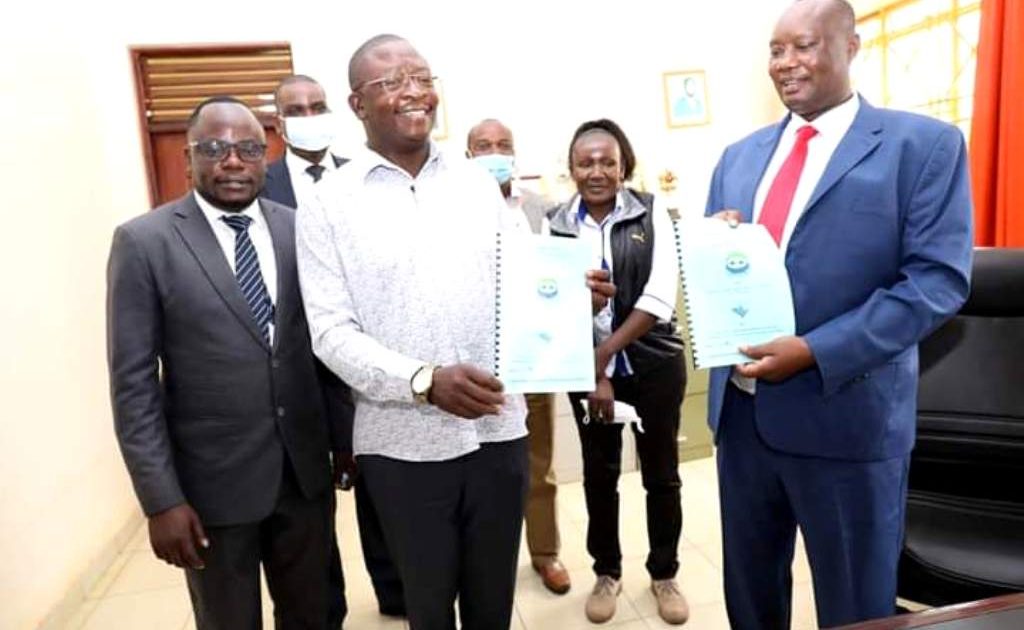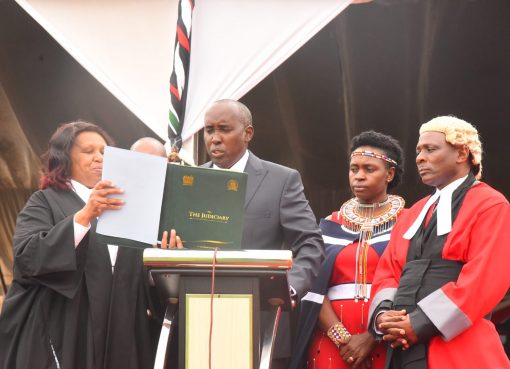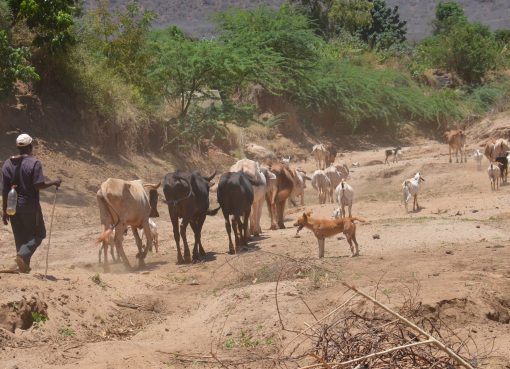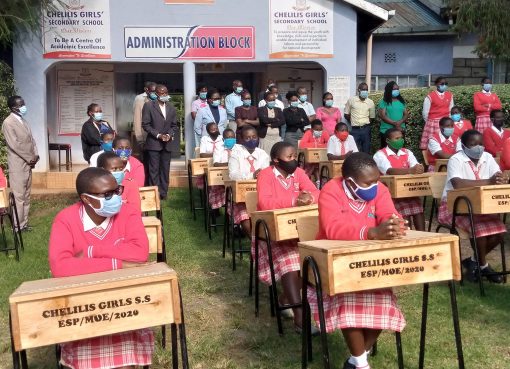The Busia County government and National Water Harvesting and Storage Authority (NWHSA) have signed a partnership deal aimed at improving the county’s water infrastructure.
Governor Sospeter Ojaamong who signed the Memorandum of Understanding on behalf of the county Friday said provision of clean water is a constitutional requirement that needs concerted efforts from all
stakeholders.
He said the partnership agreement with NWHSA will tremendously alleviate water problems in Bunyala Sub County and other areas, which face similar challenges, noting that the water department will also benefit from skills development.
“The partnership is highly welcome. Implementation of water projects has been very challenging for the county government due to inadequate technical personnel and our water company being young. We therefore hope to benefit from the authority’s highly skilled staff, ” Ojaamong said.
NWHSA board chairman Erick Okeyo who represented the authority said the Water Act envisages a close collaboration between the national and county governments, hence the signing of the agreement will enhance the partnership and capacity of the county government.
He said NWHSA role will be to establish the infrastructure and hand over completed projects to the county government.
The County Executive for Water Isaac Alukwe said the partnership was long overdue, noting that Osieko-Nambo water supply in Bunyala is the major beneficiary in the first phase of the project that will see it rehabilitated and expanded at a cost of Sh.54 million.
According to Alukwe, the county government’s role in the deal will be to provide land for the development of water infrastructure with the county remaining with the exclusive ownership and control of the provided parcel of land.
It will also provide the necessary data, maintain and enforce the delivery of services offered by NWHSA, provide finances for those projects in the work plan and identify priority projects.
The National Water Harvesting and Storage Authority is a State Corporation mandated to develop and manage national water works infrastructure aimed at enhancing water security, flood mitigation and
water storage for multipurpose use.
It develops water harvesting policies and enforces water harvesting strategies, ground water recharge using flood water and drilling.
by Melechezedeck Ejakait/Christine Sikolia





